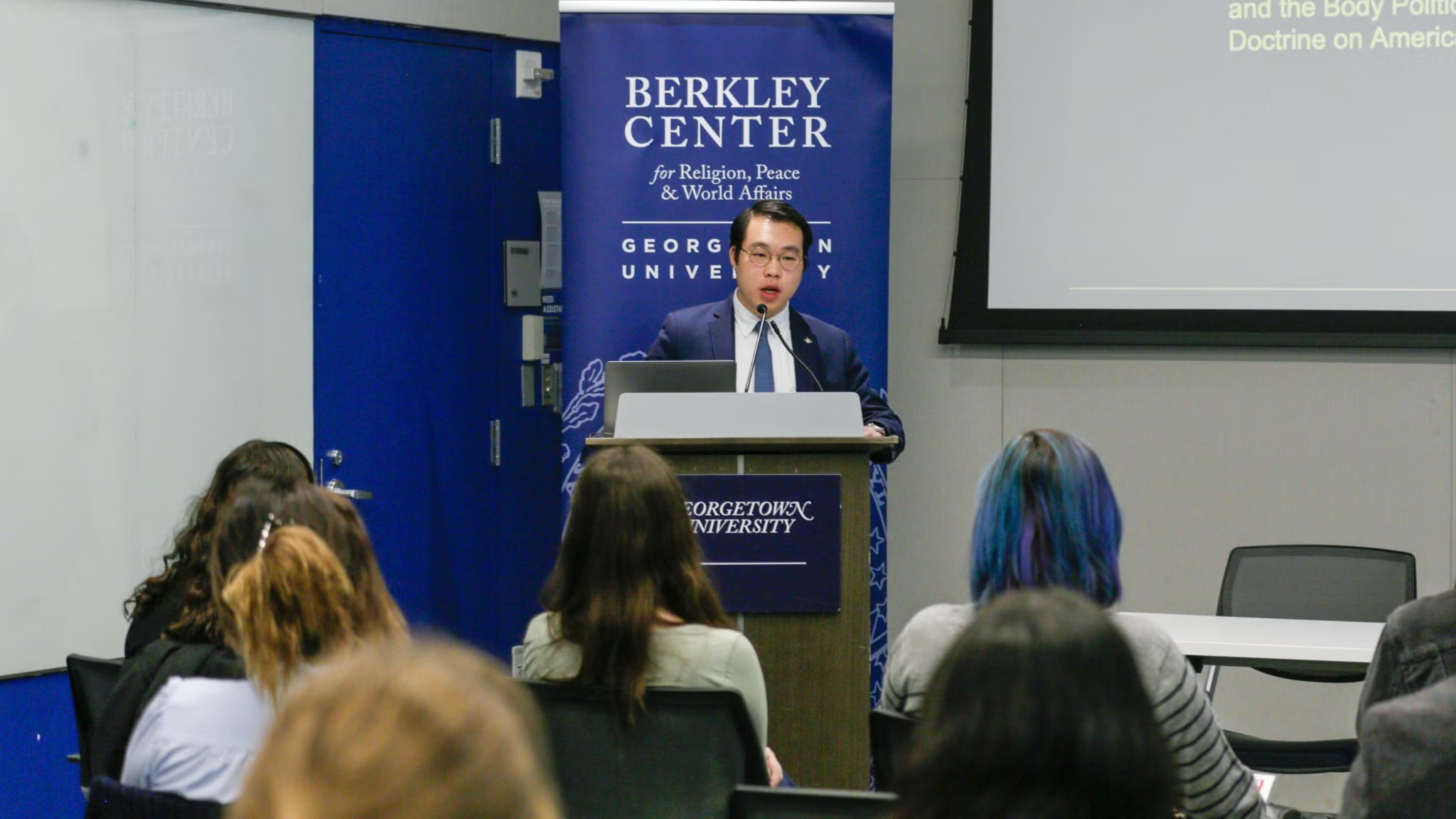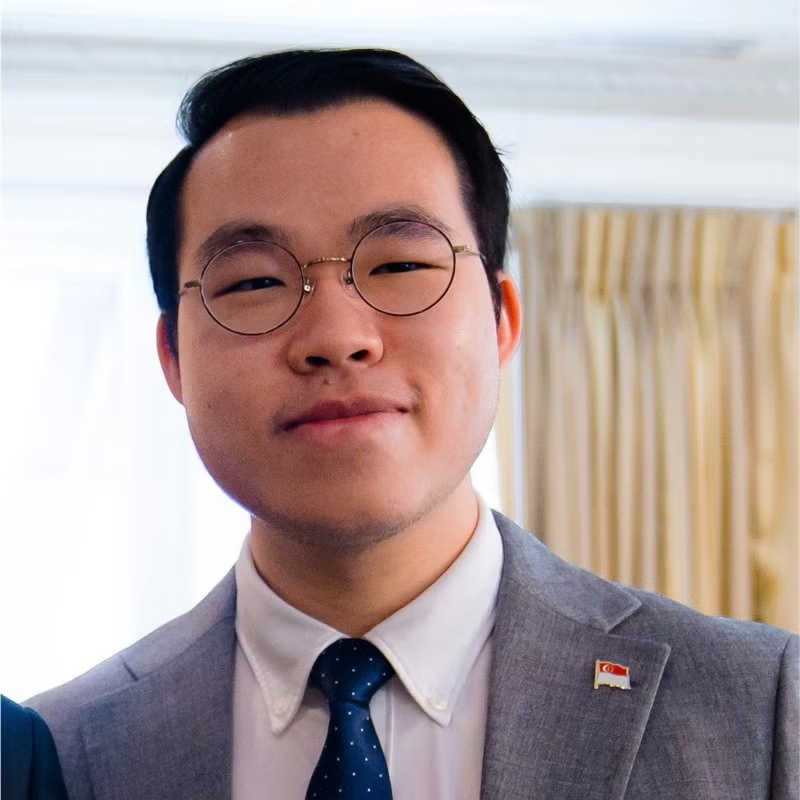
“The future of nuclear arms control is not only topical, it is an existential issue. I am grateful that my past two years at Georgetown helped me find this passion,” says Singaporean native Nigel Li (MAERES’25). He arrived at SFS shaped by undergraduate studies in Moscow, fluent in Russian and deeply curious about Eurasia’s geopolitical landscape.
Now finishing his Master of Arts in Eurasian, Russian, and East European Studies (MAERES), Li has emerged with a strong voice on nuclear diplomacy, blending rigorous research with a humanistic lens and an eagerness to learn from every corner of the global stage.
Building a global mindset for problem-solving
According to Li, he was drawn to the MAERES program at Georgetown for the faculty and the DC location: “Georgetown’s proximity to the center of American power and stellar faculty of foreign policy practitioners and academics. Nowhere else in the United States can match this fact.”
He began the program thinking he would focus solely on developments in Central Asia and the role of the Russian Orthodox Church in Russian domestic politics. However, through his classes and interactions with fellow students as well as attending events throughout DC, he realized that nuclear issues were an emerging topic that deserved further study.
One of the most influential faculty in this journey has been Professor Amy Woolf, who taught him that security issues, particularly nuclear ones, should always put humans at the center. His favorite class with her was Future of Nuclear Arms Control.
“She always encouraged us to speak up and to try to work through seemingly unresolvable nuclear security questions,” Li says. “I remember Professor Woolf telling us that even though she didn’t know all the answers, it will eventually be up to our generation to solve these challenges.”
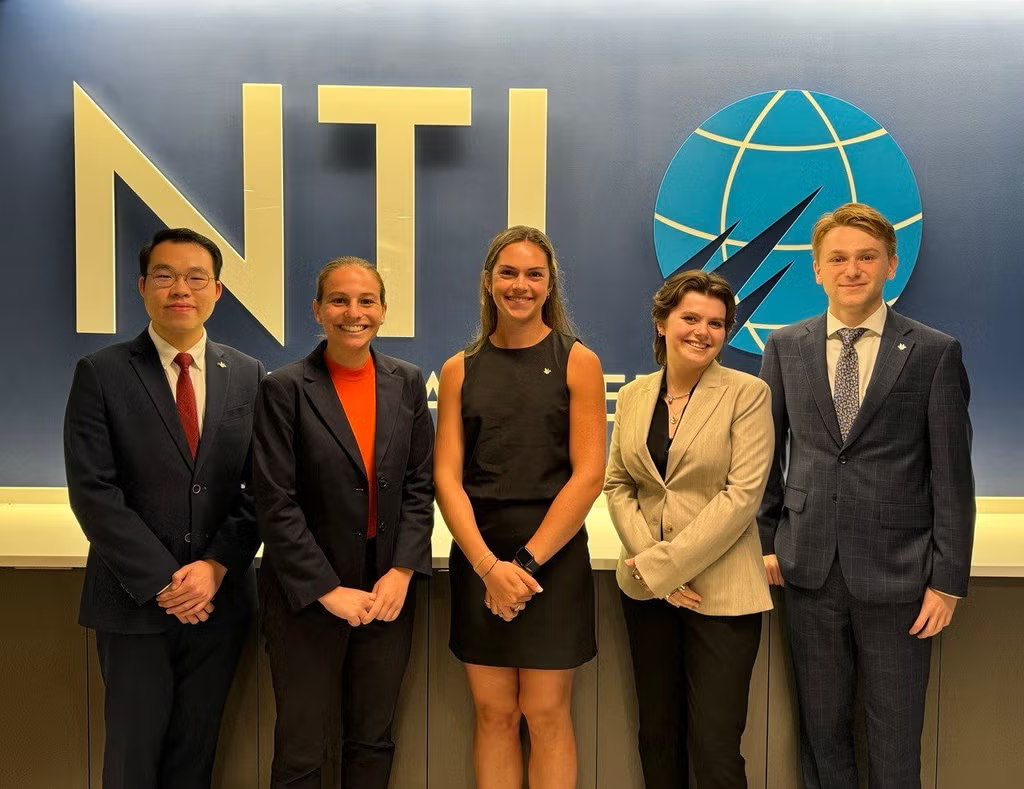
Li got to put this into practice at an armament and disarmament summer school hosted by the Stockholm International Peace Research Institute, an intense program diving into arms control issues such as nuclear security, cybersecurity and space policy. He cherished the opportunity to meet other young scholars specializing in these issues from all around the world. He also did a summer internship at the Nuclear Threat Initiative, where he supported work with Track II dialogues with Russian and Chinese nuclear arms control experts.
In dialogue with diplomacy and ethics
Li also had first-hand engagements with diplomacy dialogue on campus. His favorite memory at Georgetown is weekly meetings with Ambassador John J. Sullivan, the former U.S. ambassador to Russia, who also served as deputy secretary of state from 2017 to 2019. During these gatherings hosted by the Center for Eurasian, Russian and East European Studies (CERES), Li and his peers helped edit Ambassador Sullivan’s memoir, Midnight in Moscow, which told of his time as ambassador during Russia’s invasion of Ukraine.
“The cohort learned so much from our candid conversations with Ambassador Sullivan, which ranged from intellectually intense exchanges about the future of the world order to his passion for ice hockey,” Li shares.
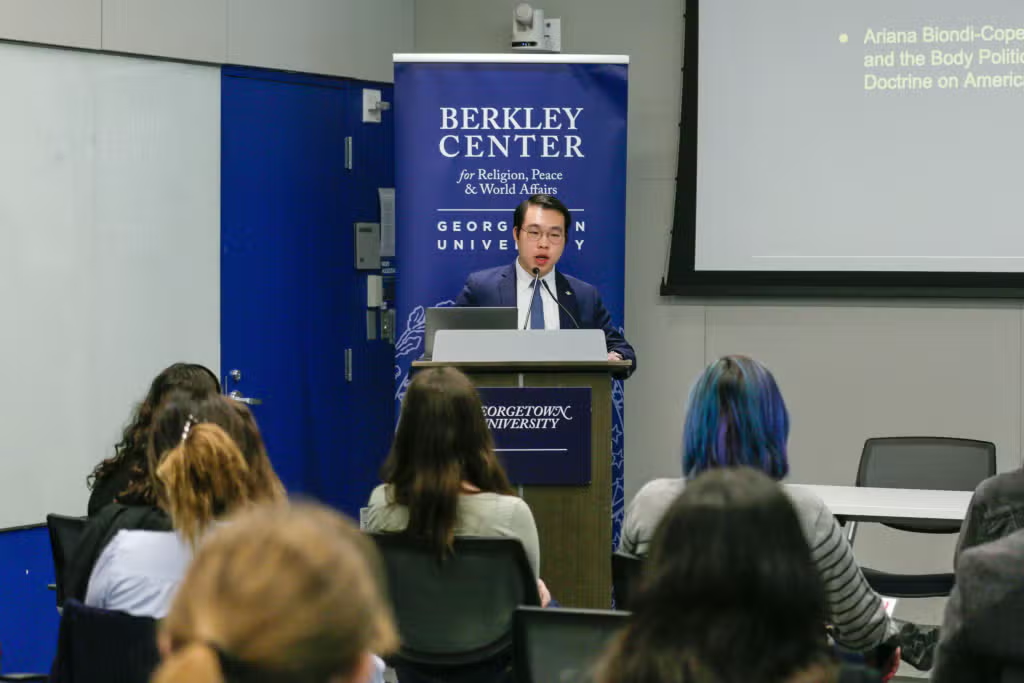
He’s also expanded his engagement with these topics as a graduate fellow at the Berkley Center for Religion, Peace, and World Affairs and as a teaching assistant for Professor Judd Birdsall’s Religion, Ethics, and World Affairs course. Birdsall not only gave Li the opportunity to lead lectures on the Russian Orthodox Church and the ethics of nuclear deterrence, but also served as a key mentor: “He was an encouraging mentor who helped me navigate the American academic environment in my early days at Georgetown.”
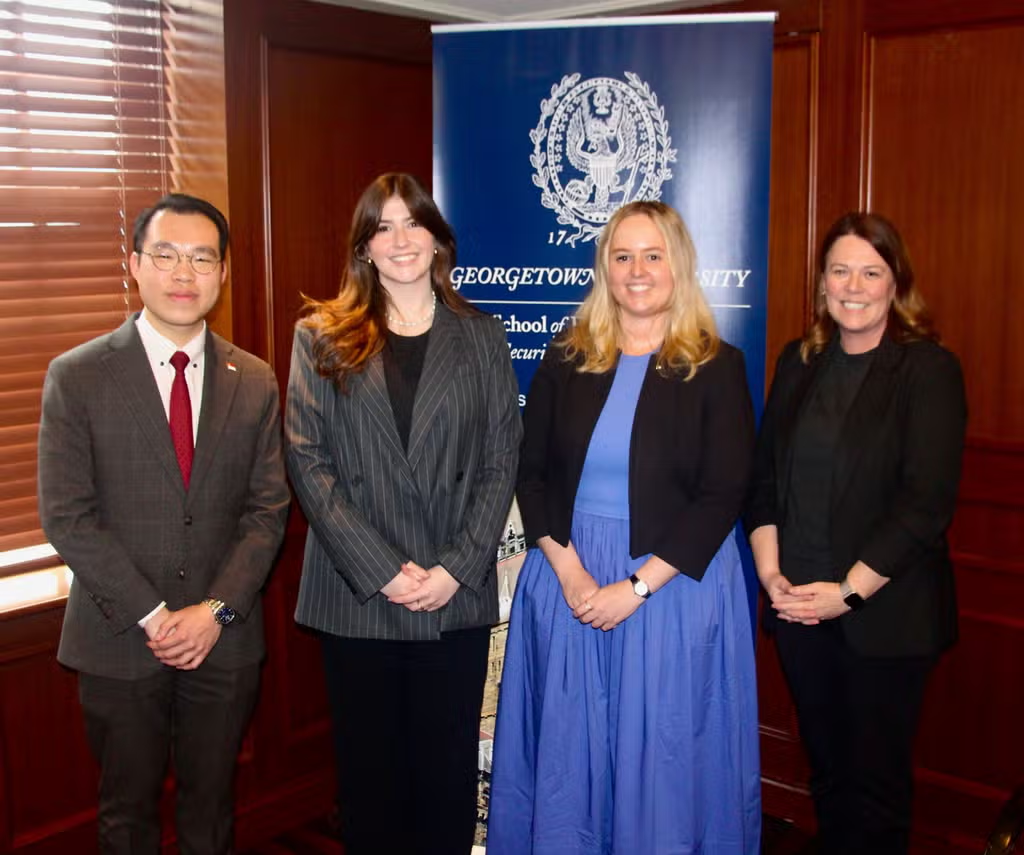
Building on his academic and mentoring experiences, Li served as a 2024–2025 Ambassador Ellsworth Bunker Fellow at the Institute for the Study of Diplomacy, where he conducted research on the Shanghai Cooperation Organization’s role in reshaping security norms across the Eurasian continent. He also co-led the “All Things Nukes” club, organizing discussions on nuclear policy that included site visits to disarmament advocacy groups and hosting an on-campus delegation from AUKUS—the trilateral security partnership among Australia, the United Kingdom and the United States aimed at promoting a free and open Indo-Pacific.
When he wasn’t grading papers, running club meetings or conducting research, Li was often found completing MAERES’ weekly GeoGuesser challenge. He never won, but he always enjoyed it.
Moving toward a safer, smarter world
This semester, Li joined the Caspian Policy Center as a research intern, focusing on geopolitical developments in Central Asia and the South Caucasus—work he hopes to continue after graduation.
“My hope is to pursue a career in the nuclear security sphere while also keeping a pulse on broader geopolitical events in Eurasia,” he says. “My time at SFS made me appreciate the cross-disciplinary nature of these topics, and has taught me that becoming fixated on a single niche could stifle one’s ability to understand these issues better. It is crucial to keep an open mind.”
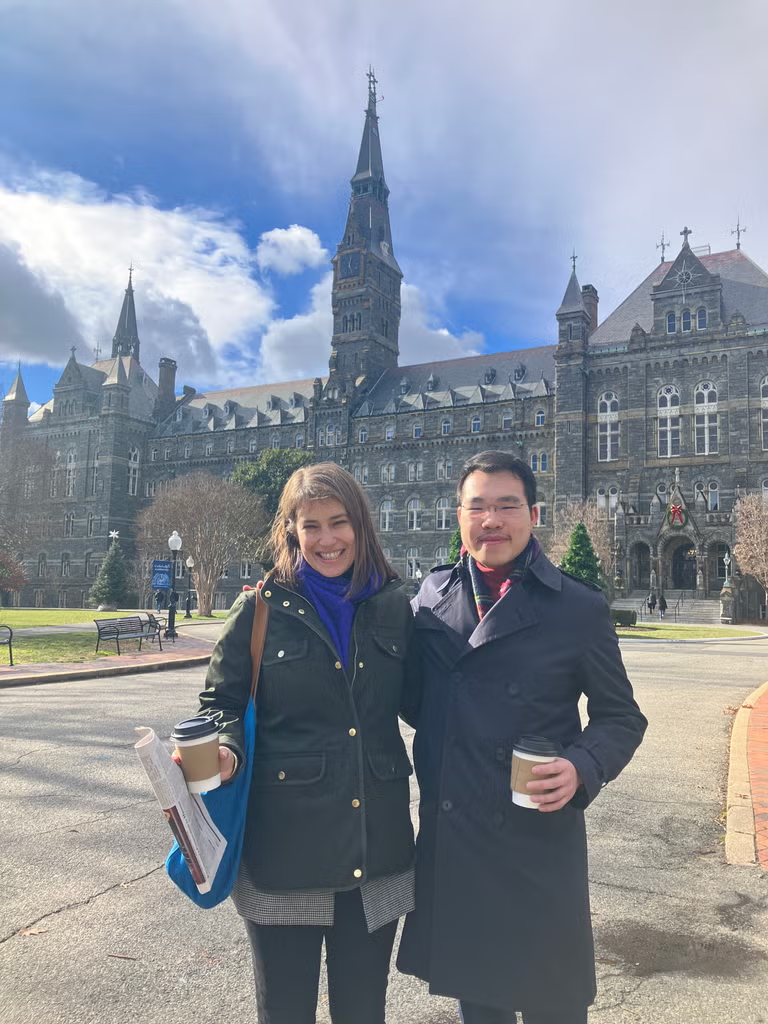
For Li, every encounter is an opportunity. He encourages students to step outside their comfort zones by attending events and reaching out to schedule those coffee chats with classmates and professors, saying, “Everyone at Georgetown has so much to share and we can learn so much from each other.”
His two years at SFS have reaffirmed his global mindset, shaped by a diverse and mission-driven community: “What I value most about the SFS community is its diversity. You have people from various backgrounds who not only seek to gain deeper knowledge about global issues, but are also motivated to solve them. It has been the greatest privilege to meet such people, and I know we will continue to go far together!”
